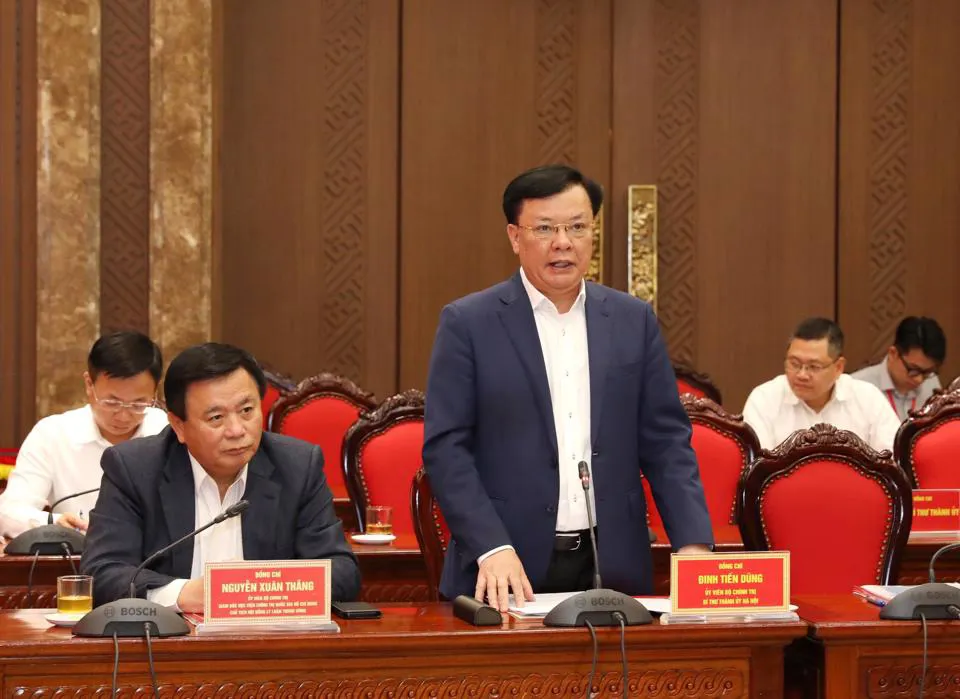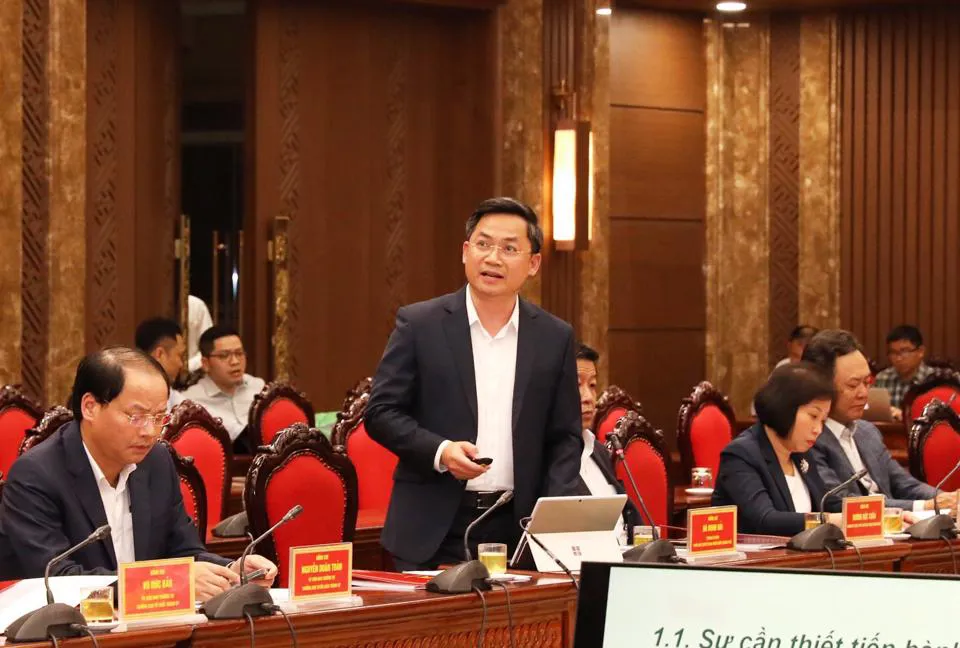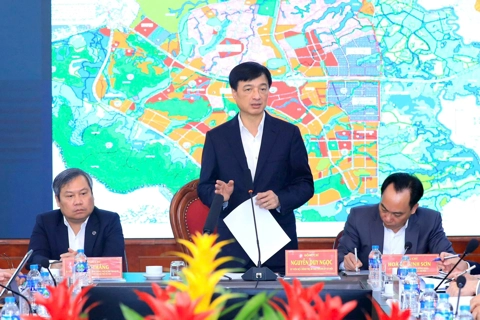Hanoi Party chief urges greater decentralization efforts to aid growth
Hanoi's commitment to promoting decentralization and empowerment is a response to the unsatisfactory progress of administrative reform, which hinders the development of investment resources.
Hanoi should step up decentralization efforts to optimize conditions for mobilizing resources for development and enhancing the investment, production, and business environment, ultimately elevating satisfaction levels among citizens and enterprises.
| Secretary of the Hanoi Party Committee Dinh Tien Dung. Photos: Thanh Hai/The Hanoi Times |
Secretary of the Hanoi Party Committee Dinh Tien Dung made the remarks at a conference held by the city's Party Committee on March 9 to discuss the city's decentralization plan to streamline operations and support growth.
At the conference, Deputy Chairman of the Hanoi People's Committee Ha Minh Hai stressed that the promotion of decentralization and empowerment in various socio-economic fields is aimed at facilitating administrative procedures and creating favorable conditions for organizations and businesses.
"The authorities are aware of the importance of decentralization and empowerment and have taken decisive steps to implement a project to promote decentralization and empowerment in the city," Hai said.
To achieve this goal, he added, the city has established a steering committee to develop a plan to promote decentralization and empowerment, focusing on providing the most favorable conditions for agencies at the district and commune levels to operate effectively.
In addition, Hanoi has developed a scientific and methodical approach to implementing the decentralization plan, taking into account the management needs of a large urban area, Hai said.
The city has determined which tasks have already been decentralized and approved, and has proposed further decentralization and delegation of tasks that have not yet been decentralized or delegated, he continued.
On this basis, Hanoi has further refined its regulations on decentralization in nine areas at the district level, all of which are related to people's livelihoods. As a result, at least 210 key tasks have been delegated.
In addition, the city has decentralized and delegated 708 out of 1,910 administrative procedures, accounting for about 37% of the total number of administrative procedures, Hai said.
According to the city deputy chairman, decentralization and empowerment have already had a practical impact on the implementation of administrative procedures, helping policies and laws to be implemented quickly and accurately.
| Vice Chairman of the Hanoi People's Committee Ha Minh Hai. |
"This, in turn, has shortened the distance between government agencies and people and businesses at all levels. It has also simplified procedures and documentation, which has saved time and money for those carrying out administrative procedures," Hai said.
Based on its experience with decentralization and empowerment, Hanoi has identified several challenges and limitations, such as overlapping and inconsistent legislation, limited awareness at all levels, and a lack of clarity regarding delegation, empowerment, and task assignment for different agencies.
In addition, resources available at the city or district level have not yet met all investment needs.
High political will
During the conference, Secretary of the Hanoi Party Committee Dinh Tien Dung emphasized that the city's commitment to promoting decentralization and empowerment is a response to the unsatisfactory progress of administrative reform, which hinders the development of investment resources.
The Secretary of the Hanoi Party Committee also shared that in order to achieve the current results of decentralization and empowerment, the city needed to adopt a methodical and detailed approach, while ensuring that it adhered to scientific and legal principles. It also required a high level of political determination, starting from the Standing Committee and the Executive Committee of the City Party Committee.
Although the initial results are positive, it is only the beginning, Dung said.
"The city will continue to strive to create optimal conditions to promote development resources, improve the investment, production, and business environment, and increase the satisfaction of people and businesses," he concluded.














